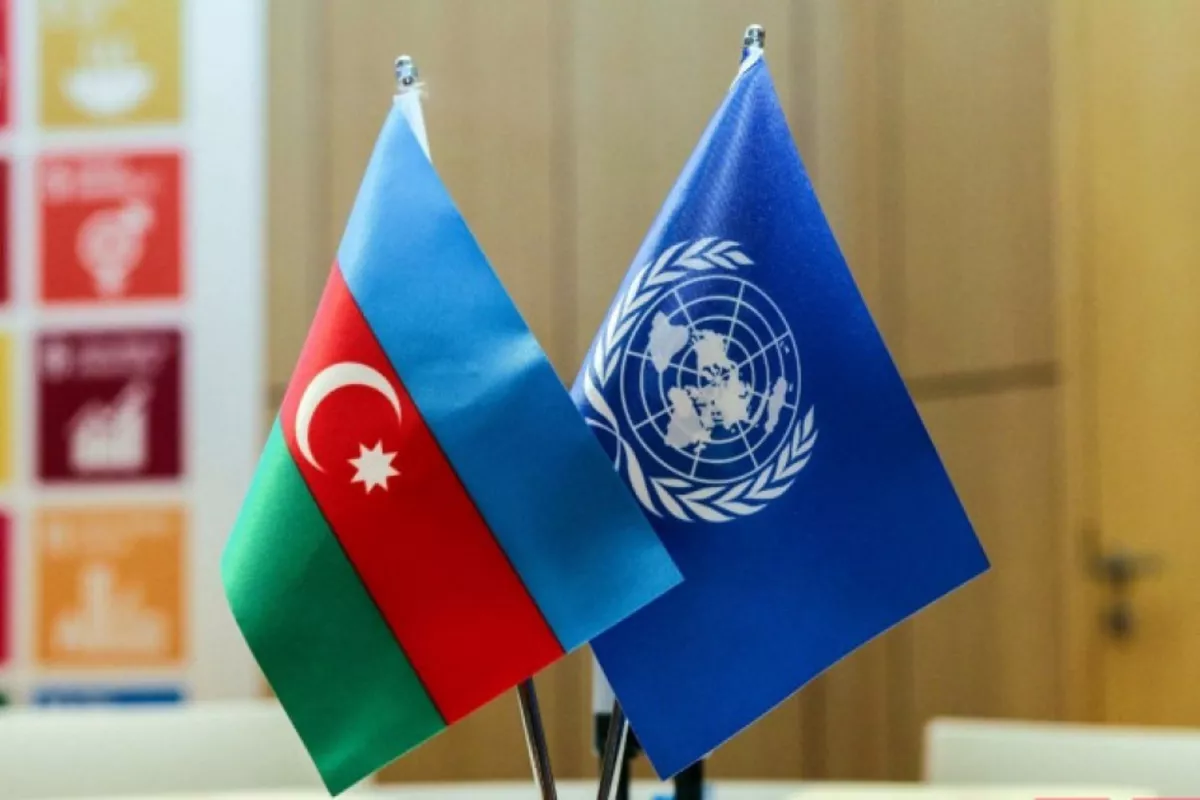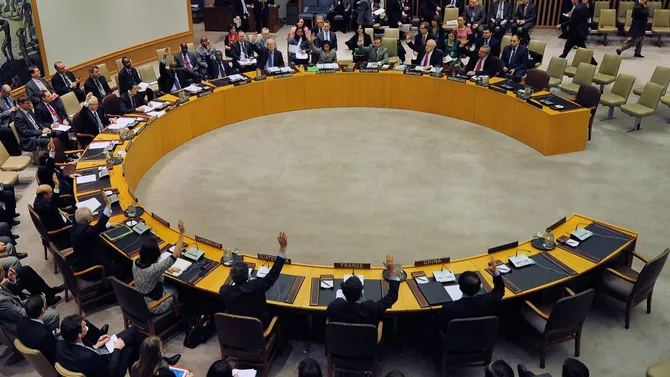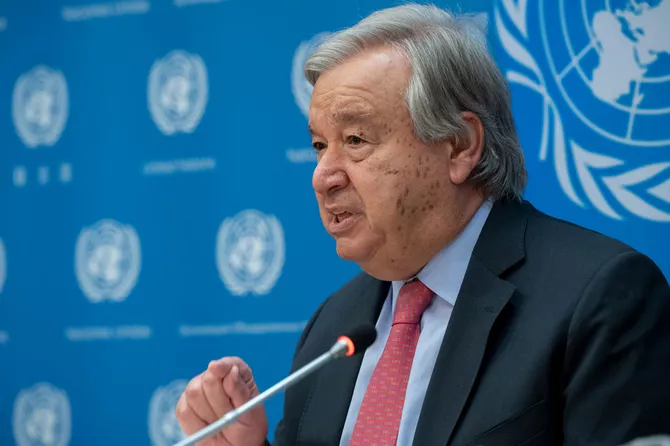
photo: Azerbaijan.az
The United Nations (UN) stands as the world’s primary platform for shaping global agendas on politics, security, and sustainable development. For Azerbaijan, which became a full-fledged member of the UN in 1992, this organization has served as a crucial instrument for safeguarding national interests and promoting its initiatives on the international stage.
When Azerbaijan regained independence in 1991, it found itself in a complex geopolitical environment. Joining the UN in March 1992 provided Baku with the opportunity to assert itself as a sovereign state and actively engage in international processes. This membership was especially vital in 1993, when the UN Security Council adopted four resolutions affirming Azerbaijan’s territorial integrity and demanding the withdrawal of Armenian armed forces from occupied territories. Tragically, these resolutions remained unfulfilled for decades, underscoring one of the UN’s most pressing structural problems: the lack of enforcement mechanisms.

photo: CNN
Over the years, Azerbaijan has transformed dramatically. In March 1992, the country entered the international arena struggling with military aggression from a neighboring state, internal political turmoil, and economic crisis. Today, Azerbaijan has emerged as a guarantor of regional stability and a strong, independent state that engages with world powers on equal footing.
Azerbaijan has consistently demonstrated its commitment to the UN’s core principles, actively participating across three main areas: peace and security, sustainable development, and human rights. This dedication was recognized in 2011, when Azerbaijan became the first country from the South Caucasus and Central Asia to be elected as a non-permanent member of the UN Security Council for the 2012-2013 term. In May 2012, President Ilham Aliyev presided over a Security Council meeting in New York, underscoring Azerbaijan’s commitment to global peace and security. During its two chairmanships, Azerbaijan initiated groundbreaking efforts, including the first-ever high-level meeting between the UN and the Organization of Islamic Cooperation, held in October 2013.
Baku’s leadership became even more visible during the COVID-19 pandemic. In December 2020, under Azerbaijan’s chairmanship of the Non-Aligned Movement (NAM), the UN General Assembly held a special session on combating the pandemic. President Aliyev urged member states to uphold multilateralism and equitable access to vaccines and medicines. His call was not merely symbolic: Azerbaijan provided humanitarian aid to more than 80 countries during the pandemic. In December 2021, the General Assembly overwhelmingly adopted a resolution proposed by Azerbaijan on behalf of NAM, demanding equal and timely access to COVID-19 vaccines, a move backed by 179 states. This initiative was a direct response to the “vaccine nationalism” that exacerbated global inequalities during the crisis.
These inequalities highlighted deeper systemic issues within the international order. President Aliyev has repeatedly emphasized the need for profound UN reforms, particularly to give greater voice to the Global South. In a recent address to the CICA Think Tank Forum, he stressed that countries from the Global South must play a more active role in shaping a just world order. Crucially, he has advocated for reforms to the Security Council, calling for the inclusion of rotating permanent seats for countries chairing the Non-Aligned Movement, the Organization of Islamic Cooperation, and the African Union - each with veto power. As he noted, the Security Council’s current composition reflects the realities of 1945, not the multipolar world of today.
Azerbaijan’s own experience has reinforced this perspective. For decades, the country waited for the international community to enforce the four Security Council resolutions related to Armenian aggression. Ultimately, Azerbaijan had to implement these resolutions itself, liberating its territories through decisive action. This experience illustrates the urgent need for mechanisms to enforce Security Council decisions, as countless nations continue to wait in vain for justice.

photo: The United Nations
Even UN Secretary-General António Guterres has acknowledged the problem, admitting that the Security Council’s structure poses both a “legitimacy crisis” and a “crisis of effectiveness.” Without reforms, the UN risks being unable to address the world’s most pressing conflicts and challenges.
Despite these shortcomings, the UN remains the most influential global institution. Hosting major UN events is a mark of prestige for any nation - a distinction Azerbaijan has earned repeatedly. In 2016, Baku hosted the Global Forum of the Alliance of Civilizations. In 2024, Azerbaijan organized COP29, one of the most significant and complex climate conferences in UN history. In 2026, Baku will host the 13th session of the World Urban Forum, further solidifying its role as a hub for international diplomacy.
Azerbaijan’s collaboration with the UN continues to deepen. The country has demonstrated that even a state that once entered the UN amid war and crisis can evolve into a proactive global leader. Today, Azerbaijan not only protects its national interests through the UN but also contributes to shaping the future of multilateralism itself. In a rapidly changing world, no better platform exists for fostering global cooperation - and Azerbaijan is determined to make its voice heard.
By Tural Heybatov
Share on social media